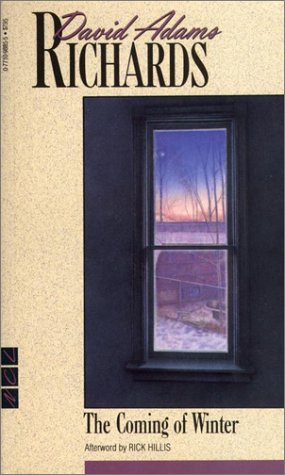New Canadian Library
1 primary work • 4 total works
Book 174
David Adams Richards finds universal truths in the very particular setting of New Brunswick’s Miramichi Valley. This, his first novel, provides a window upon a world that is as unsettling, as uncontrollable, and as inescapably authentic as a sudden brawl.
The frustrations of the community are brought into focus in the plights of 20-year-old Kevin Dulse, his family, and especially his wild young friends. An intensely realistic story, it stands firm upon its engaging, unaffected characters and the raw talent of its then 22-year-old author.
The frustrations of the community are brought into focus in the plights of 20-year-old Kevin Dulse, his family, and especially his wild young friends. An intensely realistic story, it stands firm upon its engaging, unaffected characters and the raw talent of its then 22-year-old author.
For David Adams Richards, blood ties is not merely a figure of speech, but an assertion of the reality of life in small-town Canada, where blood ties people in countless, almost unknowable ways to friends, community, and landscape. The lives of three generations of MacDurmots form a Miramichi Valley family portrait that is beguiling, insightful, witty, and tender. Employing dazzling angles of vision and fast-shifting perspectives, Richards captures the inner lives of his characters with sympathy and understanding.
Cindi and Ivan Basterache have been married only twenty months. There is a disagreement over a loan, and rumours of violence in the ensuing quarrel begin to spread throughout the northern New Brunswick mill town in which they live, setting in motion a series of events and misunderstandings. As Ivan struggles to reconcile with Cindi, the community turns against him, fuelled by his father’s self-deluded lies and misguided attempts to set things right, exposing the other side of good intentions and leading to the novel’s powerful conclusion. Disturbing, tender-hearted, and at times darkly humorous, Evening Snow Will Bring Such Peace reveals the strange unrecognized power in us all to shape one another’s destinies.
The Terris are engaging people, but they are a family in collapse. Alcoholism, drugs, and loveless sex have reduced them to a petty and wasted bunch. Worse, they typify aspects of the larger community besieged by financial woes and by creeping economic and cultural Americanization.
What David Adams Richards accomplishes is no mean feat: his characters are at times vicious, sleazy, and even outright dim, yet he manages to entitle them to the interest and sympathy of the reader.
Even more now than at its first publication in 1981, Lives of Short Duration’s sharp, essential insights have significance for readers seeking to understand the modern Canadian predicament.
What David Adams Richards accomplishes is no mean feat: his characters are at times vicious, sleazy, and even outright dim, yet he manages to entitle them to the interest and sympathy of the reader.
Even more now than at its first publication in 1981, Lives of Short Duration’s sharp, essential insights have significance for readers seeking to understand the modern Canadian predicament.



